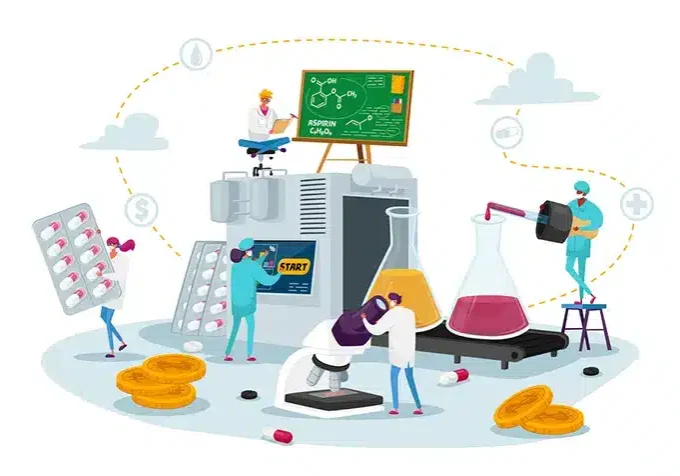What Can You Do with a Health Science Degree?
Updated: June 19, 2024
Published: June 15, 2019

Every student would love to pursue a degree that has excellent career opportunities. In fact, when choosing a course, you need to consider whether it’s marketable or not.
But what can you do with a health science degree? This post explores health science major jobs and why pursuing a degree in health science makes sense for your career goals.
According to data from the U.S. Bureau of Labor Statistics (BLS), the healthcare and social assistance sector will add approximately 2.6 million jobs from 2021 to 2031. This is influenced mainly by the COVID-19 pandemic, which has increased the need for productive health professionals and other healthcare workers.
So if you’re fascinated by science and want to pursue a career in the health sector, a degree in health science might be your best option.
What is health science?
Health science explores natural science and behavioral science to understand how they impact one’s health. It involves a variety of sub-disciplines relating to the application of science to health.
Health science majors in various interconnected disciplines such as biology, chemistry, psychology, sociology, and more. Moreover, the degree entails health policy and the business of healthcare.
Types of Health Science Degrees
You can pursue a degree in health science at various levels. Let’s explore the levels of health science.
Associate’s
An associate degree in health science is an entry-level degree that opens the doors to work as a pharmaceutical technician, medical assistant, and other similar roles. This degree takes two years. It teaches you essential skills in healthcare, including analyzing and interpreting health data and psychology and mental health.
After earning this degree, you can choose to work in entry-level roles in healthcare or continue your education to obtain a bachelor’s degree.
Bachelor’s
A bachelor’s degree in health science covers health management, human anatomy, and healthcare systems. Although the timeline varies depending on whether you’re a part-time or full-time learner, the program typically takes four years.
You can either choose between earning a bachelor in science or a bachelor of art in the subject. However, a bachelor of science has more science coursework and is ideal for students seeking roles in clinical positions as opposed to healthcare services.
You can apply for a bachelor’s degree in science from the University of People today.
Master’s
If you want to advance your studies in health science, you can apply for a master’s degree in health science. A master’s degree in this field allows you to specialize in various fields, including risk management, healthcare law, sports medicine, and nutrition, to deepen your knowledge.
Doctorate
The doctorate-level degree is a terminal degree—it’s the highest level you can earn in the field. Earning a doctorate in health science allows you to hold leadership positions. Also, you can work as a scientist, researcher, educator specialist, or informatics specialist, among other functions.
Health Science Jobs
So, now you’ve earned your health science degree and want to enter the job market. There are various health science jobs depending on the level of health science degree you obtain. Let’s look at some job positions you can get at different levels once you earn a degree in health science.
Occupational therapist
As an occupational therapist, you’ll work directly with injured, disabled, or ill patients. Your goal will be to help them resume their everyday tasks.
Occupational therapists (OT) help patients develop or retain skills that will serve them daily. You can work in occupational therapy offices or hospitals, nursing homes, schools, or provide home health services.
You’ll need at least a master’s degree in health science to work as an occupational therapist. Your median annual wage as an occupational therapist will be $85,570.
Medical assistant
With a degree in health science, you can become a medical assistant. Your work will be to complete clinical and administrative tasks in hospitals, physicians’ offices, outpatient clinics, and other healthcare facilities.
An associate degree certificate will see you work in this entry-level position. On average, you’ll earn between $35,766 and $41,890 yearly.
Clinical research scientist
A clinical research scientist conducts research in the health care or medical field. Your job roles will include screening patients, conducting trials, overseeing patient care, and submitting your findings after completing trials.
As a clinical research scientist, you must follow strict regulations and offer optimal care throughout the trial period. Moreover, you’ll need at least a bachelor’s degree to become a clinical research scientist.
This job will earn you $111,271 per year.
Respiratory Therapist
Respiratory therapists mainly deal with patients suffering from breathing or cardiopulmonary disorders, helping them find breath.
Employment growth for respiratory therapists is much higher than the average for all occupations. According to BLS, there will be more than 9,400 openings for this job every year until 2031. You’ll need at least an associate’s degree to work as a respiratory therapist.
The median annual salary for respiratory therapists is $61,830.
Surgical technician
If you wish to work in the surgery room alongside surgeons, physicians, and registered nurses, you can choose to become a surgical technician. Your work will include passing sterile instruments to surgeons and first assistants, setting up robotic surgical equipment, and handling specimens that need to go to the laboratory for analysis.
You’ll need a certificate or at least an associate’s degree to become a surgical technician.
The average annual salary for this job is $48,510.
Health Educator
You can become a health educator if you don’t want to work in a hospital setting. Your work will include evaluating and developing educational programs, teaching community members and stakeholders, helping people find health services, and advocating for the community’s overall health.
Your work environment will include government entities, non-profit organizations, and hospitals.
You’ll need at least a bachelor’s degree in health science or a related field to become a health educator. Your average annual salary will be $60,600.
Final Thoughts
Now you know what you can do with a health science degree—and this isn’t all. It’s up to you to decide the areas of health science you want to pursue and the health science degree jobs to go for.
Want to get started? Apply for a health science degree at University of the People. We offer 100% online degree programs, including our bachelor’s, associate’s, and certificate programs in health science. Apply today, and let’s prepare you for your dream career.


